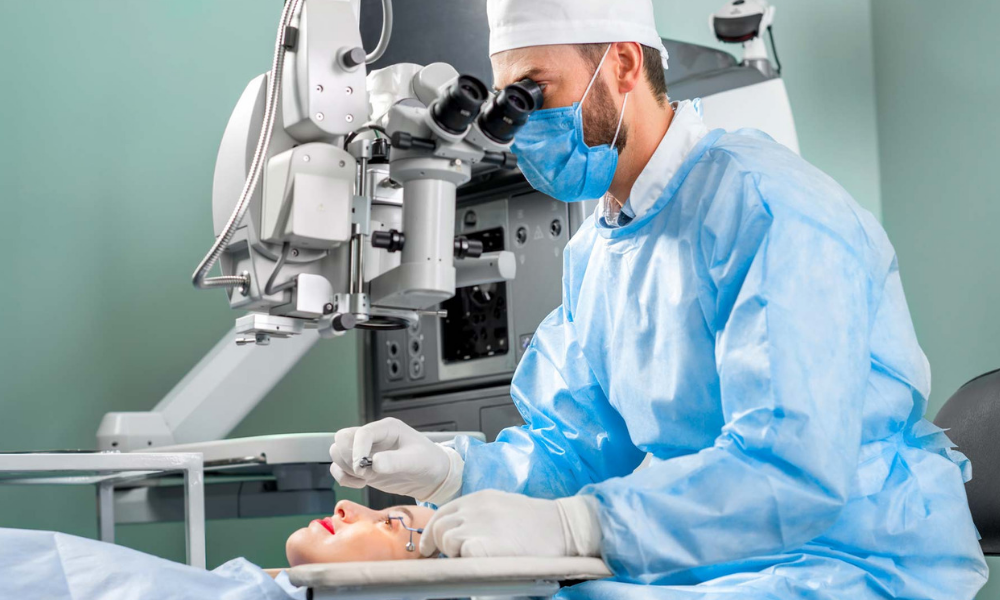Cataract surgery is one of the most commonly performed eye procedures worldwide, helping patients regain clear vision and improve their quality of life. While the procedure is generally safe, it is crucial to understand the potential risks associated with private cataract surgery, particularly in a city like London, where numerous clinics offer various levels of expertise and care. This article will explore the risks involved and how to mitigate them when opting for private cataract surgery in London.
Surgical Complications
While modern cataract surgery is highly refined, there is still a small risk of complications. One of the primary concerns is posterior capsule rupture, which occurs when the delicate membrane supporting the artificial lens is damaged during surgery.
This can lead to vision problems and may require additional corrective procedures. Another complication is intraocular inflammation, which, if not treated promptly, can affect long-term visual outcomes.
Retinal detachment is a rare but serious risk that can occur after cataract surgery. This condition happens when the retina separates from the underlying tissue, potentially leading to permanent vision loss. Patients with high myopia (severe nearsightedness) or previous eye trauma are at a higher risk of developing this complication.
Infection and Post-Surgical Issues
Infections, although rare, can occur after cataract surgery. Endophthalmitis, a severe infection of the eye, can cause significant damage and even blindness if not treated immediately. Symptoms such as severe eye pain, swelling, and sudden vision loss should be reported to an ophthalmologist without delay. Choosing a reputable private cataract surgery London clinic with stringent hygiene and infection control measures can significantly reduce this risk.
Another post-surgical concern is posterior capsule opacification (PCO), which causes blurry vision months or years after the procedure. PCO occurs when cells grow on the artificial lens, creating a cloudy effect. Fortunately, this can be treated with a quick and painless laser procedure called YAG laser capsulotomy.
Choice of Surgeon and Clinic
The level of expertise among surgeons varies, and not all private clinics provide the same quality of care. Some facilities may prioritize profit over patient outcomes, leading to rushed consultations and inadequate post-operative care. Choosing a well-established clinic with experienced ophthalmologists is essential to minimizing risks and ensuring the best possible outcome.
When considering private cataract surgery, patients should inquire about the surgeon’s qualifications, experience, and success rates. Checking reviews, seeking recommendations from trusted sources, and verifying the clinic’s accreditation can help ensure a safe and effective procedure.
Cost vs. Quality Considerations
Private cataract surgery in London can range from a few thousand to several thousand pounds, depending on the clinic and the type of lens used. While lower-cost options may seem attractive, they can sometimes come with compromises in technology, patient care, or post-operative follow-up.
Conversely, the most expensive options are not always the best. Patients should focus on finding a balance between affordability and quality, ensuring that the clinic adheres to the highest safety standards.
Recovery and Long-Term Risks
Most patients experience a smooth recovery after cataract surgery, but certain factors can affect healing. Individuals with diabetes or pre-existing eye conditions may take longer to recover and are more prone to complications. It is crucial to follow post-operative care instructions, including using prescribed eye drops and avoiding strenuous activities that could strain the eyes.
Long-term risks include dry eye syndrome and glare or halos around lights, particularly with certain types of artificial lenses. While these side effects are generally mild, they can be bothersome for some individuals. Discussing lens options thoroughly with the surgeon beforehand can help manage expectations and reduce post-surgical dissatisfaction.
Conclusion
Private cataract surgery in London offers patients the opportunity to regain their vision with shorter wait times and a wider selection of lenses. However, understanding the potential risks is crucial for making an informed decision.
By selecting a reputable clinic, verifying the surgeon’s expertise, and adhering to post-operative care guidelines, patients can significantly reduce complications and achieve the best possible visual outcome. Anyone considering private cataract surgery London should prioritize quality and safety to ensure a successful procedure with minimal risks.

